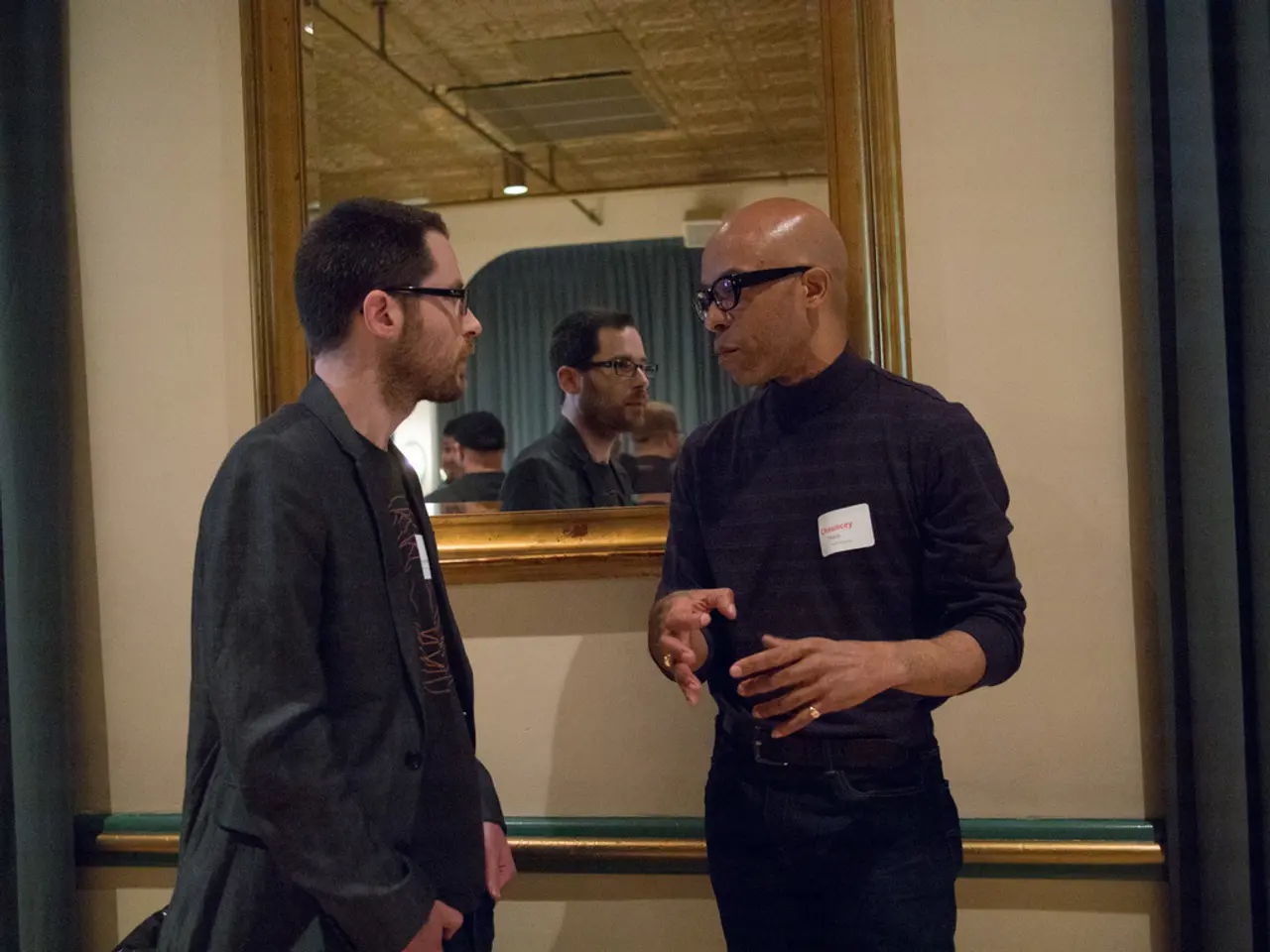Struggles with Anxiety among African Americans: Roots, Discrimination, and Strategies for Managing
In the heart of the Black community, a silent epidemic is brewing: anxiety. A fear of seeking mental health care due to common myths and stigmas may prevent Black Americans from getting the help they need, leaving them to grapple with the devastating effects of racial trauma.
Racial trauma significantly impacts the mental health of Black Americans, particularly their anxiety levels. The cumulative and long-term impact of race-based stressors, such as discrimination, prejudice, and systemic racism, contributes to heightened anxiety levels.
Experiencing racism can lead to increased stress, anxiety, and depression among Black Americans. Internalized racism, the negative self-talk, low self-esteem, and self-doubt that can result from repeated exposure to racist experiences, further exacerbates these psychological impacts.
Events like high-profile racial incidents, such as the murder of George Floyd, can induce vicarious trauma, further increasing anxiety and depression symptoms among Black Americans more significantly than other racial groups.
The historical and ongoing nature of racial trauma in the Black community creates a unique context for anxiety, differing from the experiences of other racial groups. This context often involves systemic racism and microaggressions, which can perpetuate anxiety.
Despite higher rates of anxiety and other mental health issues, Black Americans often face barriers to seeking treatment, including stigma and limited access to culturally competent care.
In contrast, while White Americans may experience anxiety due to various factors, the impact of racial trauma is less prevalent compared to Black Americans. However, significant events like racial incidents can still increase anxiety levels, albeit generally less than in Black communities.
Other ethnic minorities also experience racial trauma and its effects on anxiety, but the specific historical and systemic contexts differ. For example, refugees and asylum seekers face unique stressors related to their immigration status, which can also elevate anxiety levels.
It's crucial to address these issues head-on. Black Americans should find a therapist specializing in Black people with anxiety, who understands the role that race and racial trauma can play in this condition. Good self-care, activism, a supportive community, and alternative and complementary remedies may also offer some relief from anxiety.
Stigma within Black communities may view seeking mental health care as a sign of weakness. However, it's essential to remember that mental health is just as important as physical health. Help is available for those in crisis, including the 988 Lifeline, Crisis Text Line, and various helplines worldwide.
In 2018, 11.5% of Black people were without insurance, making it difficult to afford therapy. The right treatment for anxiety requires a personal and collaborative approach, with therapy, medication, and residential treatment as potential options. Treatment can take time, so it's important to choose a therapist that a Black person trusts.
Suicide was the leading cause of death among Black young people aged 15-24 years in 2017, underscoring the urgency of addressing mental health issues in the Black community. Anxiety is a common mental health condition among Black Americans, and it's time we break the silence and provide the necessary support.
White therapists may use racist norms in therapy or fail to acknowledge racial trauma in Black mental health. It's essential to seek a therapist who is culturally competent and understands the unique challenges faced by Black Americans.
Myths about Black mental health, such as the belief that anxiety is a choice or a personal problem, and that Black children do not experience mental health issues, must be challenged. These misconceptions only serve to perpetuate the stigma surrounding mental health care in the Black community.
In conclusion, racial trauma plays a critical role in the elevated levels of anxiety among Black Americans, influenced by both historical and contemporary factors of systemic racism. It's time to break the silence, challenge the stigma, and provide the necessary support for Black Americans to overcome the anxiety caused by racial trauma.
- The unique context of racial trauma in the Black community, rooted in systemic racism and microaggressions, significantly contributes to the higher anxiety levels among Black Americans.
- Recognizing and understanding the role that race and racial trauma play in anxiety, Black Americans can seek therapy that is both culturally competent and specialized in addressing the needs of Black people with anxiety.
- Misconceptions about Black mental health, such as the belief that anxiety is a personal choice, lead to the perpetuation of stigma surrounding mental health care in the Black community, making it difficult for individuals to seek help.
- Breaking the silence and challenging the stigma surrounding mental health care is crucial for providing Black Americans with the necessary support to overcome anxiety caused by racial trauma, and for addressing the mental-health-and-wellness needs of the Black community at large.




